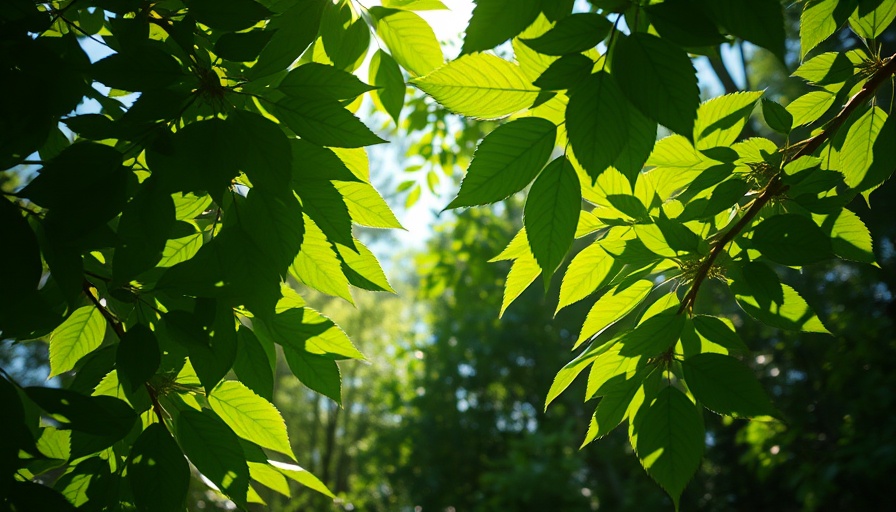
Rediscovering Calm: The Wisdom of Komorebi
Walking in nature isn't merely a leisurely pursuit; it can be a profound exercise in mindfulness. Such insight comes from the beautiful Japanese term komorebi, which describes the flickering of sunlight filtering through leaves. During moments of quiet reflection among the trees, we can learn valuable life lessons, especially amidst the chaos of daily responsibilities and stress.
Mary Oliver, in her poem, When I Am Among the Trees, perfectly encapsulates this idea. The 'trees' whisper a gentle reminder to take a moment, to slow down, and to appreciate the beauty around us. For many, including the youth, families, and caregivers amidst the pressures of modern life, engaging in this mindfulness practice can be a beacon of hope.
The Power of Mindfulness for Mental Health
Amidst the struggles faced by various communities, including poor and marginalized groups, mindfulness practices emerge as essential tools for stress reduction and mental health improvement. Research consistently shows that mindfulness meditation can lead to lower levels of anxiety, improved emotional regulation, and enhanced resilience against life's stressors. Practicing mindfulness can help individuals transcend their challenges, stemming from youth crime to personal trauma.
Stress Reduction Techniques to Incorporate
Incorporating mindfulness into your daily routine doesn’t have to be overwhelming. Here are simple techniques to begin your journey:
- Breathing Exercises: Spend a few minutes focusing on your breath. Inhale deeply, hold for a few seconds, and exhale slowly.
- Walk in Nature: Take walks in environments where you can experience 'komorebi.' Allow nature to restore your spirit.
- Journaling: Write down your thoughts and feelings. This practice can provide clarity and reduce anxiety.
Building Self-Efficacy Through Mindfulness
Mindfulness also fosters self-efficacy, helping individuals believe in their ability to manage their circumstances. This is particularly empowering for youth in South Africa facing various social challenges. By instilling practices rooted in mindfulness, we can cultivate a generation resilient to adversity. Young individuals often grapple with intense pressures and societal expectations. Through mindfulness, they can develop personal resources that promote positive mental health and help break cycles of crime and despair.
An Inspirational Call to Action for Families and Caregivers
For families, especially caregivers and educators, integrating mindfulness into everyday life can significantly enhance well-being. As stated by Mary Oliver, “You too have come into the world to do this, to go easy, to be filled with light, and to shine.” This profound message serves as a reminder that returning to simplicity and pleasure in life can bring about profound changes in our mental outlook. By practicing mindfulness, families can nurture a supportive environment that benefits everyone.
Challenges in Implementing Mindfulness
However, implementing mindfulness practices is not without challenges, especially in regions like South Africa, where socioeconomic factors can create barriers. Access to resources, such as guided therapies and community support programs, is crucial for fostering these practices. It’s essential to advocate for accessible mental health resources aimed at educating people about mindfulness and its benefits.
Final Thoughts: The Journey of Going Easy
While navigating the complexities of life, the message behind going easy remains a powerful reminder of our collective journey towards peace and well-being. Embracing this philosophy not only allows us to forge personal connections with nature and ourselves but also strengthens our community fabric. Therefore, whether you are a youth facing societal pressures, a caregiver, or an elder seeking peace, take the steps to incorporate mindfulness into your life.
 Add Row
Add Row  Add
Add 




 Add Row
Add Row  Add
Add
Write A Comment